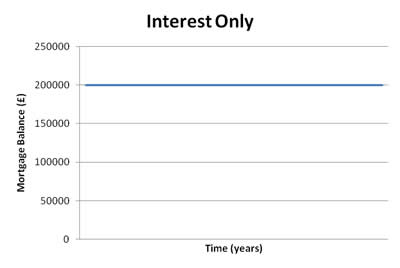And financial institutions have traditionally recently been trying to “discourage” their particular littler customers: charge on reports in which balances dip below a specific amount also shortly can look very pricey to a low-income domestic.
It’s the anxiety this is specially pernicious, claims Baradaran, which ultimately ends up propelling lots of previous lender clients to prepaid cell notes. “At your budget, you will need to a well balanced sum into the account to control the expense well,” she describes. “If one can’t accomplish that, your can’t forecast the amount of you’ll end up paying in charge or overdraft prices, and they’ll stack up. So folks pick away from the method, owing to the prepaid cards, the costs become spelled on plainly, in advance, and they’ll state, actually, at minimum i understand what they’re, but outlay cash while I bear all of them.”
There’s likewise a mental aspect. In the event it is more affordable to cover one $35 overdraft charge every six months than lots of $3.95 reload and purchase charges, Baradaran notes that clients are much more comfortable paying transaction expenses than something that these people read as a penalty, or correction. “They grow to be mad or resentful.”
Baradaran happens to be booked to testify towards Senate deposit commission a few weeks on her book’s large strategy for correcting your entire clutter on 4 November: going back to mail consumer banking, which at the maximum, right after another globe battle, got four million customers and $3.4bn in property. Actually, she contends, a center form – striking a balance within prospect of abuses in addition to the issues of payday creditors, check cashing retailers and prepaid card business, on one side, as well as the obvious hesitancy of the bank sector, on the other, to lose funds servicing the smallest amount of affluent and lowest profitable group amongst us people.
We can’t recall the final moment the usa post-office finally granted deposit services, aside from offering all of us a dollars order, if we wanted one. People banking institutions and financing unions forced it out of this businesses back in the 1960s, by being in a position to promote greater rates in comparison to 2% optimum that the post office legitimately could give depositors. In 1966, the 55-year experiment with mail bank ended.
Extremely, exactly why take it back once again?
Easy, states Baradaran. With a bricks-and-mortar infrastructure already available practically in regarding the neighborhoods already underserved by traditional finance companies, the postoffice wouldn’t must build a pricey unique infrastructure. “in certain remote segments, truly the only locations that folks can go to are test cashing shops or payday lenders – however also provide a post workplace,” she states. They regularly positions high on the recorded of trusted enterprises and is the most trusted national organization (the second, undoubtedly, not-being a higher problem).
“We may see all of them as just a bit of a dinosaur, but all of us dont see them for being a shark,” claims Baradaran of this USPS. “They’re not attending cheat an individual.”
Baradaran debates which come yourself in identical form of ecosystem that prevailed in 1910, ahead of the unique postal bank operating system was developed, and she actually isn’t dissuaded by obvious ignorance of some legislators of its really presence. At a recently available meeting, she states, Ca Republican congressman Darrell Issa commented dismissively which usa isn’t Denmark or Belgium, and willn’t treasure “Belgian solutions”. “the man merely can’t seem to be aware that postal financial was first recommended here in the 1870s,” she claims.
Two high-profile numbers would help Baradaran’s strategy: Democratic presidential candidate and Vermont senator Bernie Sanders, and Elizabeth Warren, the Democratic senator from Massachusetts and architect regarding the market economic Safety Bureau, that has been pressing for additional securities for cases of prepaid cards particularly RushCard.
The CPFB’s make an attempt to deliver an effort to the computer are laudable, nevertheless might be better to no less than start the mail banking experiment. While Baradaran want to see that integrate lending (no less than in lightweight sums of, say, $500), the fact is that a number of the “unbanked” include many looking for standard banks and loans service: benefit and checking out profile, as opposed to lending; indeed, the Pew Report suggests they’re wanting use prepaid black-jack cards to prevent yourself from debts. So, starting with the plainest vanilla of equipment makes employing the routine easier, and reduce any risk of strain regarding agency’s solutions, as well.
If we’re visiting drive forwards beyond controlling and criticizing the system that is present – banking companies and companies that have actually appeared to load the void that the loan providers’ reluctance to serve certain people developed – than we need to assume artistically about a cost-efficient technique to serve, equitably, a big and developing portion for the United states human population, without stripping all of them of ten percent of their money only so to receive the amount of money they’ve generated.
“If we all don’t possess the public will to push banking institutions to do it,  next perhaps it’s time to decide to try another thing,” claims Baradaran.
next perhaps it’s time to decide to try another thing,” claims Baradaran.
Let’s hope the Senate finance commission is taking note of the girl next month, with available psyche in addition to available hearing.